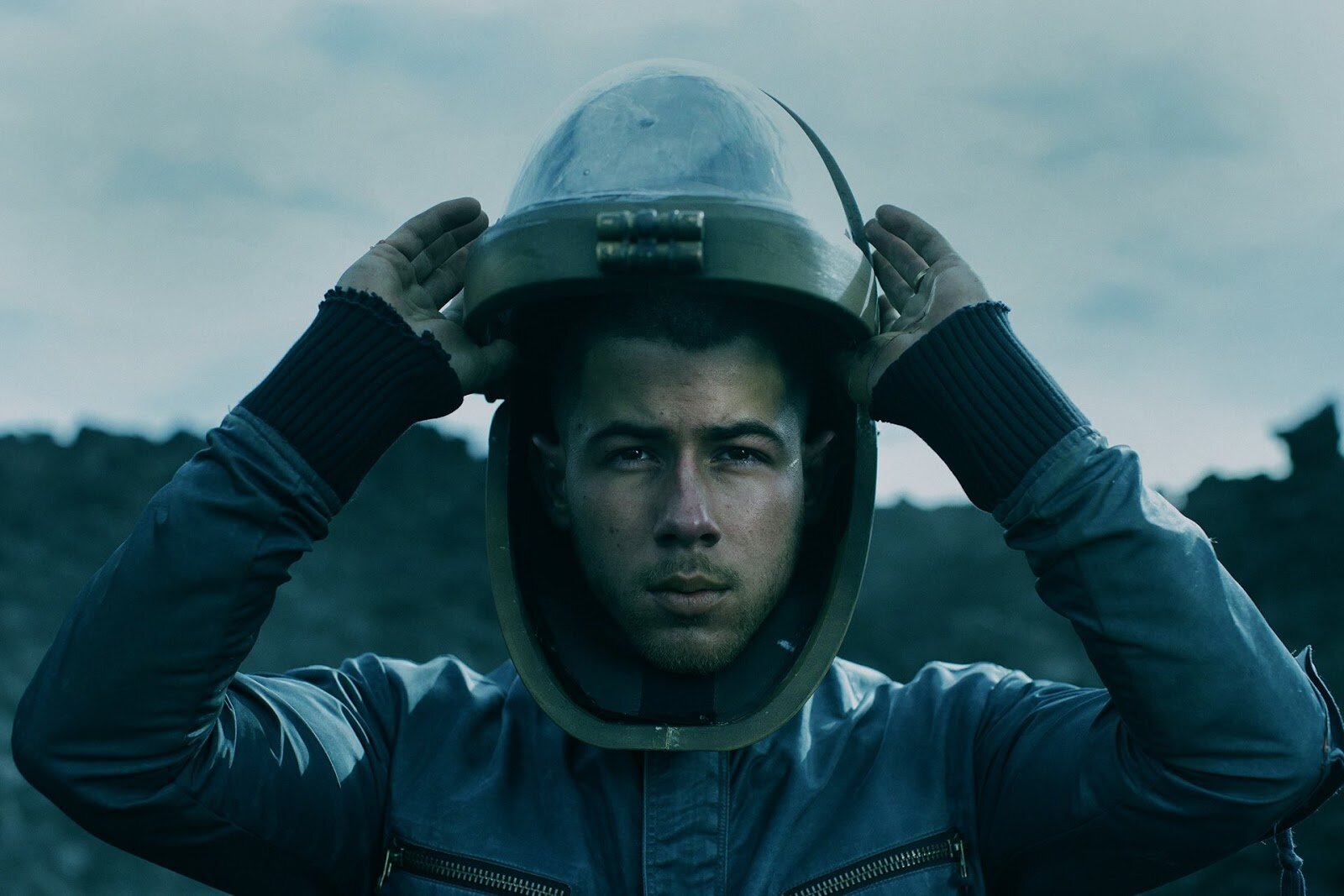Nick Jonas’s Spaceman Fails to Launch
Sofia Aguilar ‘21
Via Island, Spaceman album art
March 12 saw a wave of newly released music, including Nick Jonas’s 11-track album Spaceman, the first solo project he’s released since reuniting with the Jonas Brothers in 2019.
It’s also his most recent studio album since 2016’s Last Year Was Complicated, which received mixed reviews from music critics for its smooth production but generic lyrics, and this new album is no different.
Jonas has always adopted a darker tone with his solo projects, embracing more R&B influences in his music production and image in contrast to the Jonas Brothers’ pop-rock and pop-punk style. He’s created an individual brand separate from the band––but has yet to release music that’s been groundbreaking or revolutionary, let alone memorable. Jonas’ single “Jealous'' from his 2014 self-titled album was a huge success, but who actually listened to any of the other songs?
On Spaceman, I admire the various genres that Jonas attempts to work with, from gospel on “This is Heaven” to R&B on “Heights” and “Death Do Us Part,” and even 80s pop on “If I Fall” and “Dangerous”, where he layers synths beneath the vocals. He even interpolates the melody from Foreigner’s 1984 hit, “I Want to Know What Love Is” on “Deeper Love.” The influence of Stevie Wonder and The Bee Gees is also audible in the disco and funk elements in tracks like “Sexual” and “Delicious.”
Despite these homages, the album’s production falls flat and becomes a generic afterthought to listeners, rendering the songs forgettable. Jonas wants to capture the futuristic sensibility of science fiction movies and space travel into a new kind of futurepop (astronaut chatter can be heard at the end of the title track, for example), but ends up relying too much on electronic instrumentals and beat drops that didn’t suit his voice in the mid-2010s and still aren’t benefiting him now.
Recently, we’ve seen other albums embrace non-pop genres and previous eras of music, such as Dua Lipa’s 70s pop and disco record Future Nostalgia, and Miley Cyrus’s love letter to 80s rock on Plastic Hearts. But on Spaceman, Jonas isn’t adding anything new to what’s already been done.
Via YouTube, “Nick Jonas - Spaceman (Official Video)”
The overall sound of Spaceman is consistent to a fault, which makes sense considering that the whole album was produced by one person, indie musician and producer Greg Kurstin, known for his work in pop duo the Bird and the Bee, as well as his collaborations with Adele and Sia.
Even the title track doesn’t stand out from the other songs on the record. Lyrically, it’s unique in that it is one of the first pop songs in recent memory to reference the pandemic (“Mask off minute I get home / All safe now that I'm alone”).
But its production drags, and the pacing remains the same for its three-minute runtime without change or climax. “Spaceman” fails as a lead single to showcase the best of what this album has to offer, including vocal skill from Jonas that we’ve heard before, on previous projects both by himself and with his brothers.
We hear it on other songs––particularly in “Deeper Love” where he lets his falsetto take center stage––as well as his sensual tone, although it’s cheapened by its lyrics.
With lines like “You put the ‘sex’ in sexual”, “Sexual” is a rare instance of a song discussing sex both like a teenage boy and an almost-thirty year old man. “2Drunk” is riddled with cliches like “Too drunk and I'm all in my feelings / Oh, well, now I'm high as the ceiling” and “It's 5:00 somewhere,” which are both nonsensical and awkwardly phrased.
It’s strange for Jonas to be reflecting on the toll of the pandemic and sharing his relationship with his wife Priyanka on the same album but fitting that he doesn’t end up exploring either theme in a unique or compelling way.
Ironically, the album shines most on “Selfish,” his collaboration with the Jonas Brothers on the deluxe version with five extra tracks. The song uses instruments that sound real and not computerized, including guitar work courtesy of Kevin Jonas, the lyrics are interesting, and Nick and Joe’s vocals are powerful and earnest. But it’s unfortunately a rarity for this release.
From start to finish, Spaceman seems to blend into one long song, lacking any sense of identity or innovation that has otherwise been present in the modern pop scene, particularly by female artists. Listeners are left wanting more but Jonas, despite his clear vocal ability, can’t stand out in this landscape as a solo artist or deliver more-than-mediocre music.


